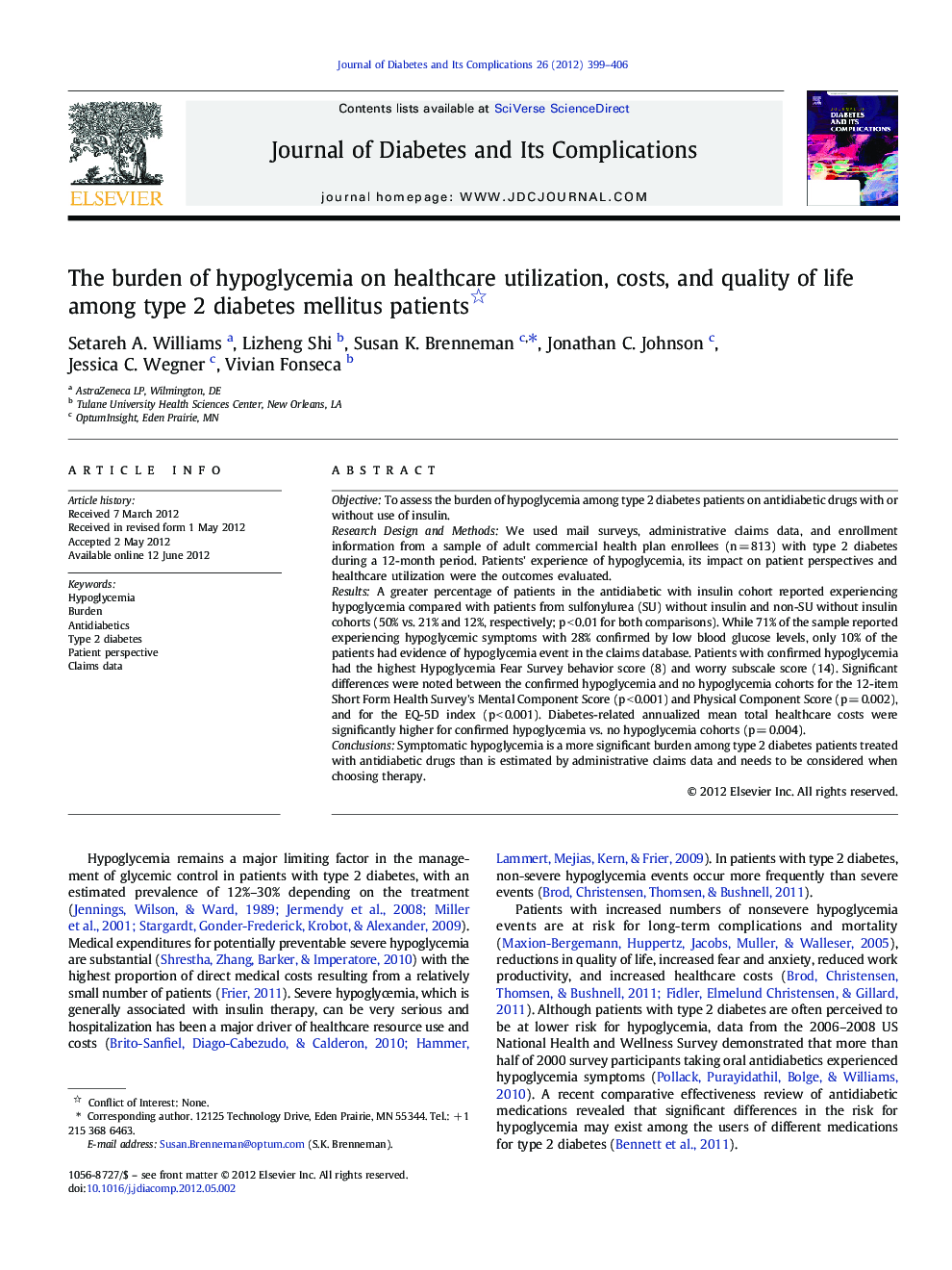| Article ID | Journal | Published Year | Pages | File Type |
|---|---|---|---|---|
| 2804179 | Journal of Diabetes and its Complications | 2012 | 8 Pages |
ObjectiveTo assess the burden of hypoglycemia among type 2 diabetes patients on antidiabetic drugs with or without use of insulin.Research Design and MethodsWe used mail surveys, administrative claims data, and enrollment information from a sample of adult commercial health plan enrollees (n = 813) with type 2 diabetes during a 12-month period. Patients' experience of hypoglycemia, its impact on patient perspectives and healthcare utilization were the outcomes evaluated.ResultsA greater percentage of patients in the antidiabetic with insulin cohort reported experiencing hypoglycemia compared with patients from sulfonylurea (SU) without insulin and non-SU without insulin cohorts (50% vs. 21% and 12%, respectively; p < 0.01 for both comparisons). While 71% of the sample reported experiencing hypoglycemic symptoms with 28% confirmed by low blood glucose levels, only 10% of the patients had evidence of hypoglycemia event in the claims database. Patients with confirmed hypoglycemia had the highest Hypoglycemia Fear Survey behavior score (8) and worry subscale score (14). Significant differences were noted between the confirmed hypoglycemia and no hypoglycemia cohorts for the 12-item Short Form Health Survey's Mental Component Score (p < 0.001) and Physical Component Score (p = 0.002), and for the EQ-5D index (p < 0.001). Diabetes-related annualized mean total healthcare costs were significantly higher for confirmed hypoglycemia vs. no hypoglycemia cohorts (p = 0.004).ConclusionsSymptomatic hypoglycemia is a more significant burden among type 2 diabetes patients treated with antidiabetic drugs than is estimated by administrative claims data and needs to be considered when choosing therapy.
